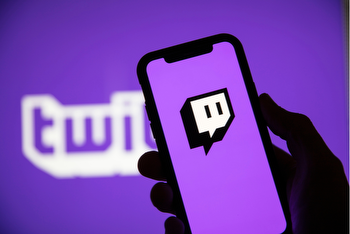Twitch updates policy banning links, referral codes to gambling sites
Twitch currently has categories for Slots, Poker and Online Casino; and the general policy allowing gambling as long as it is legal in the locality where the streamer is creating content.
United States | 08/12/2021
The live streaming platform announced new restrictions in order to prevent harm and scams by questionable gambling services that sponsor content on Twitch. The platform has given creators time to remove such content from their channels before the measures are enforced. This comes amid ongoing debate on whether the platform should allow this content.
Videogame-oriented live streaming platform Twitch has announced new measures to ban gambling-related links and referral codes.
The news comes from a Creator Update, in which the platform announced restrictions on Wednesday in order to “prevent harm and scams created by questionable gambling services that sponsor content on Twitch.”
As a result, the live streaming service says it will prohibit sharing links and referral codes to sites that offer slots, roulette or dice games. “We will continue to monitor gambling-related content and update our approach as needed,” further adds the update.
This enforcement is set to start on August 17, in order to give creators time to remove such content from their channels.
The debate on whether the platform should allow this content is not recent and has been an ongoing discussion topic for months, with streamers siding both in favor and against gambling, some even suggesting that it should be banned altogether.
This has not been the case so far, with Twitch even having dedicated categories for Slots, Poker and Online Casino; and the general policy allowing gambling as long as it is legal in the locality where the streamer is creating content. However, this new measure to ban links and referral codes might point to a change in direction.
In July, Twitch was banned by Slovakian internet service provider O2 CZ, reportedly after a content creator played poker on stream, which again reinitiated debate.
Some streamers have turned to VPN services when sharing gambling content, with others accused as going as far leaving their countries for taking gambling sponsorships in places where it is legal to do so.
































